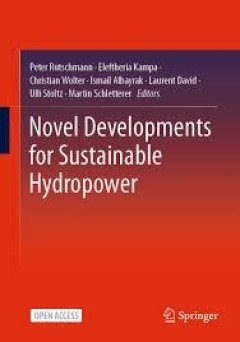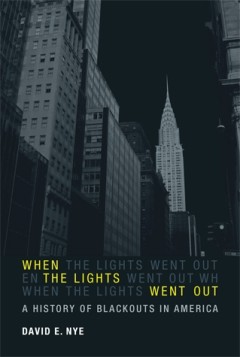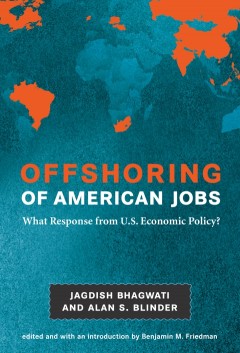Filter by

Age of Information: Concept, Metric and Tool for Network Control
The concept of information freshness has developed over the last few years into an active and rapidly growing area of research. It has become known as the Age of Information (AoI). After its initial formal introduction, it became clear that it was very relevant (if not crucial) for numerous applications, ranging from autonomous vehicle systems, the Internet of Things, real-time computing to dat…
- Edition
- -
- ISBN/ISSN
- 9783036572925
- Collation
- 400
- Series Title
- -
- Call Number
- -

Radio and Women's Empowerment in Francophone West Africa
The book examines the signifcant role played by radio in empowering women in three West African countries: Mali, Niger, and Burkina Faso. The choice of these three countries enables a fair comparison: all three face similar social, economic and political problems, share similar religious, traditional and cultural backgrounds and, most importantly for this book, all suffer from similar, part…
- Edition
- -
- ISBN/ISSN
- 9783031359859
- Collation
- XIII, 239
- Series Title
- -
- Call Number
- -

European Guide to Power System Testing = The ERIGrid Holistic Approach for Ev…
This book provides an overview of the ERIGrid validation methodology for validating CPES, a holistic power system testing method. It introduces readers to corresponding simulation and laboratory-based tools, including co-simulation, real-time simulation, and hardware-in-the-loop. Selected test cases and validation examples are provided, in order to support the theory discussed. The book begins…
- Edition
- 1
- ISBN/ISSN
- 9783030422745
- Collation
- XII, 132 hlm; ill., lamp.,
- Series Title
- -
- Call Number
- -

Novel Developments for Sustainable Hydropower
olicies are crucial in determining and improving the state of our environment. Policies set goals (including targets, indicators and time frames) while policy instruments are the specific means or measures to translate the policy intent into action (Jacob et al. 2019). In discussions on the sustainability of hydropower production, knowledge of the currently existing regulations at different…
- Edition
- -
- ISBN/ISSN
- 9783030991388
- Collation
- XVII, 223
- Series Title
- -
- Call Number
- -

Disaster Intelligent Perception and Emergency Command of Power Grid
This open access book addresses the current technical problems of low efficiency of emergency site information collection, lack of flexibility of emergency information interaction, lack of fusion analysis technology and disaster loss prediction model, and low intelligence of emergency auxiliary decision making. The content contains research on multiple information collection technology of power…
- Edition
- -
- ISBN/ISSN
- 978-981-99-7236-4
- Collation
- VIII, 373
- Series Title
- -
- Call Number
- -

The Power of Energy Justice & the Social Contract
The first step in any energy decision today should be how to factor in energy justice. This will have the result of ensuring that there is a just outcome for society. One powerful effect of placing energy justice at the forefront for all decision-makers will be that it can balance the 3Rs which are ‘Risk, Reward, and Responsibility’. Ensuring justice is applied across these 3Rs wi…
- Edition
- -
- ISBN/ISSN
- 9783031462825
- Collation
- XXXI, 265
- Series Title
- -
- Call Number
- -

Flexitranstore: Special Session in the 21st International Symposium on High V…
This open access book comprises 10 high-level papers on research and innovation within the Flexitranstore Project that were presented at the FLEXITRANSTORE special session organized as part of the 21st International Symposium on High Voltage Engineering. FLEXITRANSTORE (An Integrated Platform for Increased FLEXIbility in smart TRANSmission grids with STORage Entities and large penetration of…
- Edition
- -
- ISBN/ISSN
- 9783030378189
- Collation
- VI, 115
- Series Title
- 610
- Call Number
- -

The Palgrave Handbook of International Energy Economics
This open access handbook is distinguished by its emphasis on international energy, rather than domestic energy policies or international geopolitic aspects. Addressing key topics such as energy production and distribution, renewables and corporate energy structures, alongside global energy trends, regional case studies and emerging areas such as the digitalization of energy and energy transiti…
- Edition
- -
- ISBN/ISSN
- 978-3-030-86884-0
- Collation
- -
- Series Title
- -
- Call Number
- -

When the Lights Went Out: A History of Blackouts in America
Where were you when the lights went out? At home during a thunderstorm? During the Great Northeastern Blackout of 1965? In California when rolling blackouts hit in 2000? In 2003, when a cascading power failure left fifty million people without electricity? We often remember vividly our time in the dark. In When the Lights Went Out, David Nye views power outages in America from 1935 to the prese…
- Edition
- -
- ISBN/ISSN
- 9780262280853
- Collation
- 1 online resource (x, 292 pages) :illustrations, map
- Series Title
- -
- Call Number
- -

Offshoring of American jobs: What response from U.S. economic policy?
Two leading economists discuss a range of issues relating to the "offshoring" of American jobs, from free trade to unemployment levels.OCLC-licensed vendor bibliographic record.
- Edition
- -
- ISBN/ISSN
- 9780262258579
- Collation
- 1 online resource (xiv, 141 pages) :illustrations.
- Series Title
- -
- Call Number
- -
 Computer Science, Information & General Works
Computer Science, Information & General Works  Philosophy & Psychology
Philosophy & Psychology  Religion
Religion  Social Sciences
Social Sciences  Language
Language  Pure Science
Pure Science  Applied Sciences
Applied Sciences  Art & Recreation
Art & Recreation  Literature
Literature  History & Geography
History & Geography